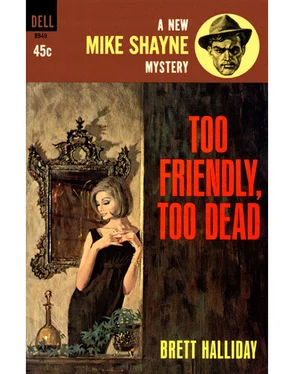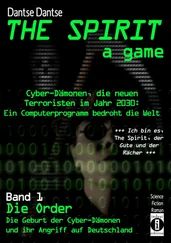Dan Fesperman - The Double Game
Здесь есть возможность читать онлайн «Dan Fesperman - The Double Game» весь текст электронной книги совершенно бесплатно (целиком полную версию без сокращений). В некоторых случаях можно слушать аудио, скачать через торрент в формате fb2 и присутствует краткое содержание. Жанр: Шпионский детектив, на английском языке. Описание произведения, (предисловие) а так же отзывы посетителей доступны на портале библиотеки ЛибКат.
- Название:The Double Game
- Автор:
- Жанр:
- Год:неизвестен
- ISBN:нет данных
- Рейтинг книги:3 / 5. Голосов: 1
-
Избранное:Добавить в избранное
- Отзывы:
-
Ваша оценка:
- 60
- 1
- 2
- 3
- 4
- 5
The Double Game: краткое содержание, описание и аннотация
Предлагаем к чтению аннотацию, описание, краткое содержание или предисловие (зависит от того, что написал сам автор книги «The Double Game»). Если вы не нашли необходимую информацию о книге — напишите в комментариях, мы постараемся отыскать её.
The Double Game — читать онлайн бесплатно полную книгу (весь текст) целиком
Ниже представлен текст книги, разбитый по страницам. Система сохранения места последней прочитанной страницы, позволяет с удобством читать онлайн бесплатно книгу «The Double Game», без необходимости каждый раз заново искать на чём Вы остановились. Поставьте закладку, и сможете в любой момент перейти на страницу, на которой закончили чтение.
Интервал:
Закладка:
“He was at the Foreign Ministry,” I said. “One of the Milosevik people.”
“A top deputy. Had you been installed as a full-time correspondent, you would no doubt have sought to interview him. And when your name came up for a visa, he was the one who remembered this affair from the 1950s. Being a collector himself, he quickly produced a copy of this old report. Your father, no doubt, became aware of its existence.”
“So he had me blackballed?” I was incredulous. “Some minor embassy cover-up for a CIA man led him to engineer this? ”
“You must understand. The Western media were completely against us. We were using all leverage at our disposal to change that. If you had worked in Belgrade, I am sure that this would have been used to try to influence you. Your father’s past would have been exposed. And with it, Mr. Lemaster’s.”
I didn’t buy it. Or at least not until I considered a further possibility:
What if, by covering for Lemaster, my father had enabled a budding double agent to flourish and grow? And what if, by 1992, even Dad suspected as much? Darker still, what if he’d then become part of Lemaster’s campaign of deception, which would have made him even more vulnerable to the release of those old secrets from 1959?
A real Joe. That was how Lemaster had described Dad on the day of our interview. “Joe” was British espionage slang for “agent,” as I knew from my reading. A few days ago Dad had sworn point-blank that he’d never worked for the CIA, and I’d believed him. Maybe I should have asked instead if he’d ever worked for the KGB.
“You see it, do you not?” Bobik said it with a note of triumph. “I can tell by your eyes. It is true. He worked against your interests in order to protect his own.”
That was indeed the nut of it, a painful truth that landed like a knife at the bottom of my gut. And what of my mother, who had left us that very year? Had Dad’s duplicity driven her away? She might even have discovered details that Markovik hadn’t known, so she’d run off to Greece to be killed in an accident. Assuming it was an accident. Because Breece Preston was possibly in the mix as well, in some way, shape, or form. What did I truly know about any of those events, other than my father’s version?
A chain reaction of doubt and worry built toward critical mass, fueled by slivovitz. I stood shakily from Bobik’s table. His air of satisfaction sickened me. I wanted out of there. Now.
“You must think about these things, then act upon them,” he said smugly as he followed me to the door.
As I reached the silence of the streets I thought I heard him laughing. Like Szondi, I thought. Like all of Budapest, it seemed.
33
Walking back to the inn it occurred to me that, like it or not, my handler had achieved the desired result. I was now determined to see this through, no matter how dangerous. If vengeance was his goal, then he had chosen the perfect vessel for delivery.
The quest had begun for me as a means of renewal, perhaps even redemption. It had turned into something far uglier-a means of retribution-and I felt powerless to stop it. It was still dark when I returned, but Litzi was awake and dressed, and fretful with worry.
“Where were you? I thought they must have taken you.”
“I was finding out the truth about my father.”
That caught her short.
“It doesn’t seem to have made you happy.”
So I showed her the documents and told her the two Belgrade stories, beginning with my downfall in the early nineties, then working my way back toward the so-called “flap” involving the cover-up of a failed polygraph.
To my annoyance, Litzi was not particularly sympathetic. She listened with an air of growing impatience, and by the end she was rolling her eyes. Just as I was finishing, she could no longer contain herself.
“No, no, no! You see it, but you don’t see it. Or maybe you’ve known all along but refuse to see it. Or maybe I just think that because I know more than you.”
“What do you mean?”
She shook her head.
“I shouldn’t be the one to tell you. This is between you and your father.”
“I’ll manage that all right, the moment we’re back. With everything I’ve learned he’ll have to come clean. At least now I know why he didn’t want me to pursue this.”
“You have it backwards. Yes, he was behind the letter. That’s clear enough. But the only person he was really betraying was himself. Don’t you see?”
“No. I don’t.” She watched me closely, as if deciding whether my bewilderment was genuine. Then she took my hand, more in the manner of mother to child than woman to lover, and she spoke very gently.
“That time that I spied on him, when we were seventeen. Remember that I told you I went into his bedroom, but didn’t find anything worth reporting?”
“Yes.”
Her tone was grave.
“Well, I did find something. I never reported it, because it had nothing to do with his work. But I am almost sure your father knew I’d seen it.”
“Go on.”
“It was an address book. A little black book, people call them, with names and numbers. It was sort of a diary, too, with notes about the people. It was very personal, very intimate. All of the names were men. It was his life, his secret life, but it had nothing to do with spies or spying or even your precious Ed Lemaster. Do you understand me now?”
I nodded, floored. Then I thought some more. Everything I’d been seeing was now standing on its head.
“The polygraph,” I said. “Bobik said they weren’t sure which one of them failed it. Do you think it was Dad?”
“Of course. It was the question they always asked in those days, whether you were going into intelligence or sensitive diplomacy. They even asked me when I was vetted for the Verfassungsschutz: ‘Have you ever had a homosexual experience?’ Heaven help you if you got it wrong.”
“Unless you had a young friend in the CIA who could help you clean it up.”
“I suspect he also coached your father on how to beat it on the second try.”
“That also fits with what Humphries told me.”
“She mentioned the polygraph?”
“Sorry. I didn’t want to tell you. I was too ashamed. I thought my father was protecting a mole.”
“He was protecting himself. And Lemaster helped him.”
For a fleeting moment I felt I’d been set adrift. A sigh welled up in my chest, and I exhaled slowly. My face felt hot, the heat of shame-not for Dad, but for me, and for everyone else who had never really known him. We were the reason he’d kept living a lie, year after year, in city after city.
The letter in ’92? Yes, it was an outrage, a dagger in my back. But by then the stakes must have seemed higher than ever. He was a ranking official, and Lemaster was an esteemed novelist. Why risk both their reputations, especially when he probably figured his son was strong enough, smart enough, talented enough to handle such a setback?
Other things began to fall into place.
“Those men we used to meet when I was younger. I always thought they were spies.”
“I think I’ve probably seen him with some of those men.”
“When you’ve seen him out on the town?”
“He always gives me a certain look, a look of understanding, and of thanks.”
“For keeping his secret.”
“Because he always kept mine. He never told you about my years with the Verfassungsschutz, and I’m sure he must have heard.”
No wonder he’d been reluctant to tell me about his friendship with Lemaster. I remembered the excuse he’d first used, right after the story came out in the Post: “There were security issues.” Yes, there certainly were. Some very sensitive and personal ones.
Читать дальшеИнтервал:
Закладка:
Похожие книги на «The Double Game»
Представляем Вашему вниманию похожие книги на «The Double Game» списком для выбора. Мы отобрали схожую по названию и смыслу литературу в надежде предоставить читателям больше вариантов отыскать новые, интересные, ещё непрочитанные произведения.
Обсуждение, отзывы о книге «The Double Game» и просто собственные мнения читателей. Оставьте ваши комментарии, напишите, что Вы думаете о произведении, его смысле или главных героях. Укажите что конкретно понравилось, а что нет, и почему Вы так считаете.












